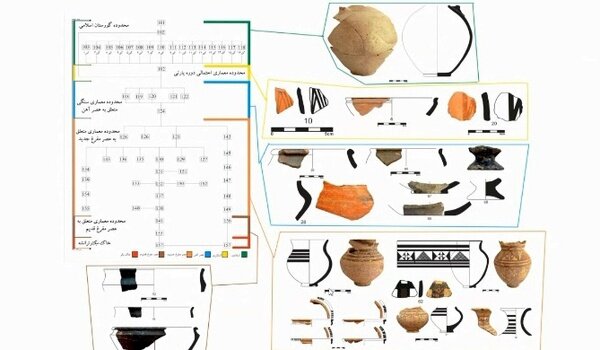Bronze Age relics, sediment discovered in northwest Iran

TEHRAN – Archaeologists have recently discovered arrays of relics and sediment estimated to date from the Bronze Age in an excavation conducted at Tappeh Gerdi-Gouran in northwest Iran.
The discovery was made during the second season of an archeological survey at the ancient hill, which is situated in Piranshahr, West Azarbaijan province, to complete the information of the layers and architectural ruins [partly] obtained during the first chapter,” Azita Mirzaei, who leads the survey, said on Tuesday.
Azarbaijan region has been the seat of several ancient civilizations. It formed part of Urartu and later of Media. In the 4th century BC, it was conquered by Alexander the Great and was named Atropatene after one of Alexander’s generals, Atropates, who established a small kingdom there.
The Mongols overran the region in the 13th century, and, under the ruler Hulegu, Azarbaijan became the center of a Mongol empire extending from Syria on the west to the Oxus River (now the Amu Darya) on the east.
AFM/
Leave a Comment